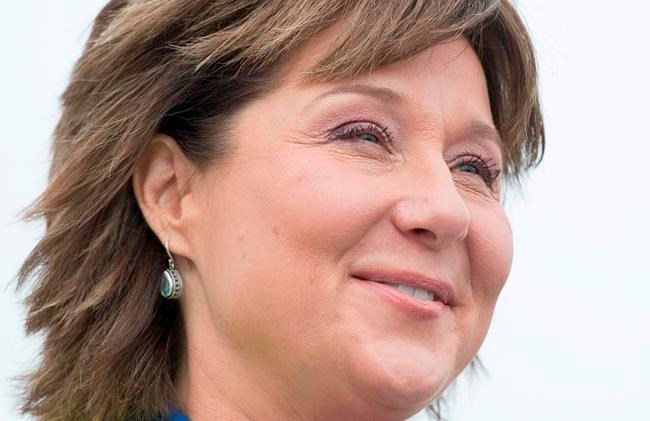No matter how many seats the final count gives her sa���ʴ�ý Liberals, this week’s provincial election should be seen as a stinging rebuke of Christy Clark.
At the end of the counting in the wee hours of Wednesday morning, the Liberals had 43 seats, the NDP 41 and the Greens three. Clark had already promised to remain as premier, despite the uncertainty of the party standings.
Standings could change in 10 days with the completion of the final count — which will include absentee ballots, which were not part of the initial count. They could change again if any judicial recounts determine that other candidates were the successful ones.
For two weeks, British Columbians will have no certainty about who won the election. That should give Clark, and the other senior Liberals, time to consider how their best-laid plans went so terribly wrong.
At this time, it’s reasonable to wonder whether Clark should remain as premier and party leader.
Her party, by rights, should have won the election. sa���ʴ�ý’s economy leads the nation. Job growth is strong. The unemployment rate in Victoria is the lowest in sa���ʴ�ý. The budget is balanced — a rarity, countrywide, and an accomplishment the Liberals can claim credit for. And yet they lost seats, including four cabinet ministers, and their share of the popular vote declined.
Why did voters punish the Liberals? It’s entirely possible that they simply wanted a change after 16 years with the same party in power. Every government starts to look stale with time, and since its election in 2001, the party has made plenty of decisions that angered voters.
There has also been the perception that the government is working on behalf of corporations, not the rest of us. That notion was fuelled, in part, by loose rules over campaign finances that gave big spenders big access to the premier.
Clark has seemed aloof and arrogant — and out of touch with the common folk.
Consider her salary top-up from her party, worth $30,000 to $50,000 a year. Consider the Supreme Court ruling that Clark’s government had denied teachers their bargaining rights by legislating away parts of their contract. Or the lasting controversy over the firings in the Health Ministry, firings that were simply not justified.
Voters appreciate her steely will and ebullient personality, and she can be a formidable opponent on the campaign trail, but as with former prime minister Stephen Harper, Clark never forged a personal bond with voters.
In the run-up to the election, there was a palpable desire for some loosening of the purse strings. The NDP and Greens seized on this theme, yet the provincial budget promised several more years of spending restraint.
Had Clark projected sympathy and warmth, this might have been manageable. But she failed to see where her combative and tight-fisted instincts were leading, and she failed to see the gap between her party and increasing numbers of voters.
If Clark is to help her party rebound, she has two choices — and one might be tougher than the other.
She could try to remake herself as a premier for all British Columbians, a premier whose vision extends well beyond the office towers of downtown Vancouver, and beyond the occasional fly-by of her Okanagan riding.
If she cannot do that, she should consider moving on to the career in the corporate world that surely awaits her — a career with less stress and more money.
sa���ʴ�ý owes Clark a vote of gratitude. She managed our province through numerous hardships, and never lost her sense of optimism.
Now it’s time for her to consider what she owes herself, her party and her province.



